FUNC on Safari: the 6th International Conference on Functional Metagenomics (FMG24)
FUNC on Safari: Functional Metagenomics conference 2024 at Skukuza, Kruger National Park, South Africa (2nd – 5th June 2024)
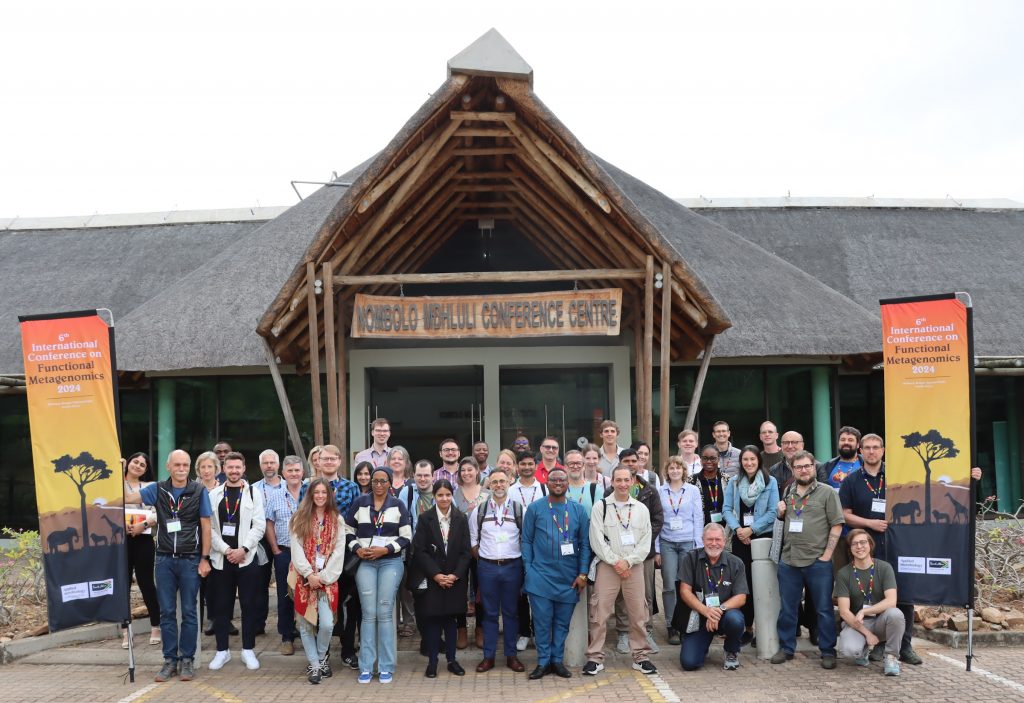
FMG24 participants group photo, taken outside the conference centre at Skukuza rest camp.
GigaScience Press were once again proud sponsors of the Functional Metagenomics conference (FMG24). Functional Metagenomics is an area of interest for the journal, particularly via our MetaFUNC thematic series. This, the 6th installment of the conference, was held in South Africa at the Skukuza rest camp inside the famous Kruger National Park in South Africa, from June 2nd-5th. I was lucky enough to be able to attend again (see the write-up of the 2019 edition) on behalf of GigaScience.
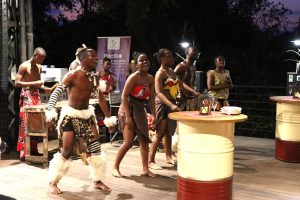
Traditional music and dance performance
The conference opened on the Sunday evening with local music and dance performances and a few brief words from the local host Prof. Don Cowan (University of Pretoria) to welcome us all to South Africa. Every day included a multitude of great speakers on various topics, below I highlight just a few of them, interspersed with important networking event coverage.
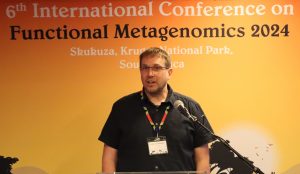
Alexander Wentzel (SINTEF) speaking at FMG24
The main event kicked off with a keynote talk from another of the organisers Alexander Wentzel (SINTEF) describing the progress of bioprospecting efforts in Norway. SINTEF utilise both data-driven approaches (e.g shotgun metagenome sequencing with bioinformatic analysis) as well as more traditional functional approaches (e.g. cloning and screening for traits of interest). Recognising the advantages of both approaches; with the rapid growth in sequencing technologies allowing a greater ability to mine the various sources for known or very similar genes, but the functional screening enabling the discovery of more diverse gene products that have the desired actions. Alex gave an overview of some of the ongoing projects at SINTEF and how they are utilising the more advanced screening techniques of microfluidics (covered in more detail by later presenters).
Marla Trindade (University of Western Cape) took us on a journey of discovery of biosurfactants and explained the ever growing utility (and thus market) for these microbial compounds. Biosurfactants are surfactants of biological origin (usually microbial). They can be any compound that reduces the surface tension between two media (liquid-liquid, liquid-gas, or liquid-solid). Surfactants are common compounds found in detergents and cleaning agents. The use of biosurfactants is more desireable than chemical surfactants from a marketing point of view as they are considered “Eco” friendly. In addition, they could be safely used in an even wider range of products, including beauty and food products.
For a change of tack, Eran Elhaik (Lund University) demonstrated the ability to use metagenomic sequencing as a rudamentary bio-tracing method. Using geographially informative taxa (GITs) he can employ a machine learning approach to determine the geographic origin of items. The approach seems to have some promise for things that are not disturbed too much, or where you have a good deal of data for a given origin, but the accuracy and certainty still needs some improvements.
Moving back to functional screening experiments, Gabrielle Potocki-Veronese (University of Toulouse) presented their use of microfluidic approaches that are proving so useful at scalling up functional screening, in this case to help identify novel glycosides.
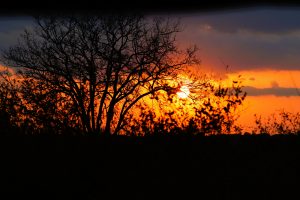
The sunset in Kruger national park
We rounded out the first day with a sunset safari drive followed by a bush brai (BBQ in the bush!) where we exchanged stories of who saw what. One group (not mine-hence no photo) having a close encounter with a Rhino!
Florian Hollfelder (University of Cambridge) is one of the leading experts in the application of microfluidics to functional metagenomics, he presented an overview of recent work on utilising ultra high throughput microfluics combined with sequencing to aid directed evolution of enzmes (as seen in his recent paper on biorXiv).
Later that day Liisa Van Vliet (University of Cambridge) also from the Hollfelder group, presented the technical advancements of the various microfluid screening methods that are now possible and in regular use in their lab, allowing the screening of up to 107 variants per day!
Whilst Trevor Charles (Friend of GigaScience and series editor of the Functional metagenomics series) was unable to attend the conference on this occasion, he was able to deputise a couple of members of his group to come in his stead. Delaney Nash (University of Waterloo) explained the nuances of mosaic end tagmentation technique that they are using to explore antimicrobial resistance genes in wastewater, and Aranksha Thakor (University of Waterloo), also studying wastewater, demonstrated the optimsed construction of metagenomics libraries using Cosmids.
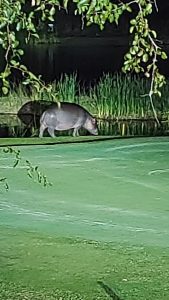
Hippo on the putting green! #extreamegolfing
Dinner on the second evening, was hosted at the local golf club. Where members can play at their own risk….there are no fences stopping the wildlife roaming the fairways! Thankfully we were only there for dinner in the enclosed dining area, but the view from the veranda showed us the sort of obstacles that could wander on to the course…..see hippo photo to right!
Prof Stephanie Burton (University of Pretoria), gave a thought provoking presentation on the impact of AI and digital technologies on the academic research environment (see also our recent post from the WCRI conference related to AI in the research environment). There is no point in trying to put that genie back in its bottle, instead academia need to embrace it and learn how to teach (students and staff) how to utilise it responsibly, whilst understanding its limitations.
Grace Ijoma (University of South Africa) made two appearances as speaker, once on the water quality (or lack of) in two artifical lakes in the Gauteng province. They used metagenomics to demonstrate the level of pathogens present in those water bodies to prompt the government to take remidial action. The second was a very brief account of the isolation and sequencing of a novel fungi associated with white rot on decaying wood.
Michael Wittenberg (University of Cape Town) is investigating the microbiomes of seasonal resurrection plants, a fascinating group of plants that have the ability to change their behaviour across seasons depending on levels of desication. His research is looking into the potential of the rhizosphere to influence this behvaviour.
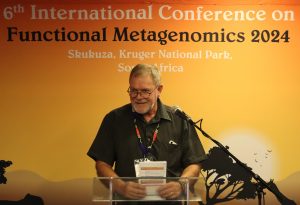
Don Cowan speaking at FMG24
Fittingly, the local host, Don Cowan, presented the closing keynote on the changing face of functional metagenomics. After a brief jaunt through the ages summarising metgenomics from its first mention in the literature in 1998 to the present day. Don went on to speculate on the future of this conference series, by a simple show of hands, it was clear that there is indeed a desire to continue the FMG Conference series in some shape or format, so watch this space!
And finally, what sort of a trip to Kruger National Park would it have been without some wildlife photos!
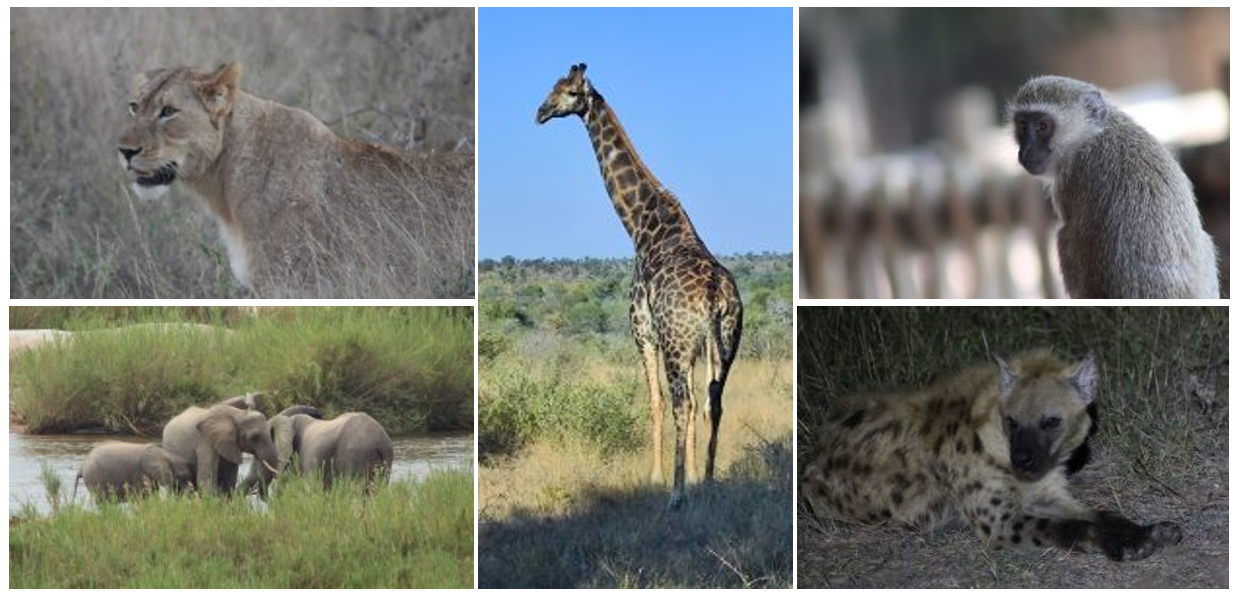
A selection of animal photos from Kruger national park whilst attending FMG24